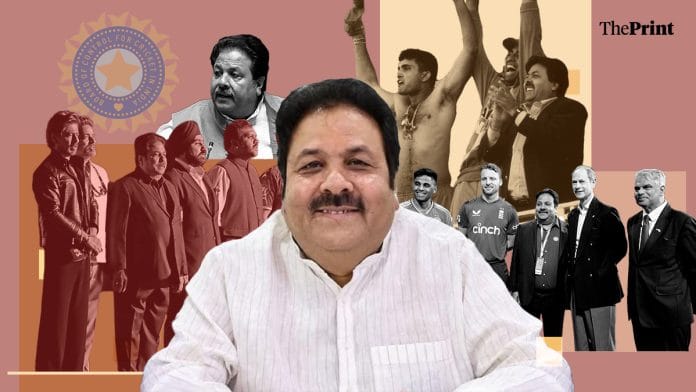Lucknow/Kanpur/Delhi: During the Rajya Sabha elections in 2000, a political gamble caught everyone’s attention. The Akhil Bhartiya Loktantrik Congress, a breakaway faction of the Congress, unexpectedly fielded a Delhi-based journalist from Uttar Pradesh: Rajeev Shukla.
With just 22 MLAs backing him, the odds were stacked against him; he needed at least 36 votes to secure a seat. Political circles buzzed with skepticism, but when the results were declared, Shukla stunned everyone by bagging 51 votes.
Senior leaders across Uttar Pradesh later acknowledged what had transpired. MLAs from multiple parties had crossed lines to vote for Shukla.
That election was a defining moment that revealed Shukla’s extraordinary ability to build bridges and wield influence across political divides. It was the beginning of his journey as one of India’s most versatile power players, equally at ease in political circles, cricket stadiums, media conclaves or corporate conventions.
Now, at 65, he is likely to become interim president of the Board of Control for Cricket in India (BCCI) with current chief Roger Binny’s tenure ending. Shukla is currently the body’s vice-president.
Speaking to ThePrint, he recalled how, in the early years of his career, he had never imagined that he would one day enter politics, but “somehow, it happened”.
“I have maintained (good) terms throughout my career. I am still connected to my hometown Kanpur and my state Uttar Pradesh from where I began my journey in journalism, cricket administration and also in politics,” said Shukla.
From a behind-the-scenes functionary to a central figure in party affairs, Rajeev Shukla’s journey is one of political timing, soft power and strategic networking—in politics, cricket and beyond. Such is his uncanny ability to be photographed at all the right moments that the Congressman is now part of popular culture. His encounters with the who’s who of the world of glamour, power and sports often spark meme fests.
One of the most critical voices against corruption in the BCCI, MP and ex-cricketer Kirti Azad once defined Shukla’s role as a “tamatar (tomato)”.
“I still remember I once called Shukla a tamatar. I feel he is like a tamatar; sabji mein bhi hai, salad mein bhi hai (he is like the tomato—found in a vegetable curry, also in a salad),” Kirti Azad told ThePrint. “I appreciate that man for being a tamatar. Now I would call him a jaadugar (magician) also. Whichever government is there, whoever is the president, he is always there. He is a Congress MP but is becoming BCCI chief in Amit Shah’s son’s era.”
Rajeev Shukla was born into a middle-class family in the Darshan Purwa area of Kanpur district. His father, Ram Kumar Shukla, was a lawyer, and following in his footsteps, Rajeev too studied law at VS Sanatan Dharma College in Kanpur. Later he did his Masters in Economics from Christ Church College in Kanpur.
His elder brother, Dilip Shukla, is also a journalist, based in Kanpur.
Long before his tryst with power and prominence, Rajeev Shukla began his career in 1977 as a reporter for a small evening tabloid, Satya Samvad, in Kanpur, his hometown. His salary was Rs 200 a month. Although the publication eventually shut down, Shukla’s journalistic journey moved with speed. In 1978, he moved on to the Northern India Patrika, and later to Dainik Jagran in Kanpur and Lucknow, steadily climbing the ladder.
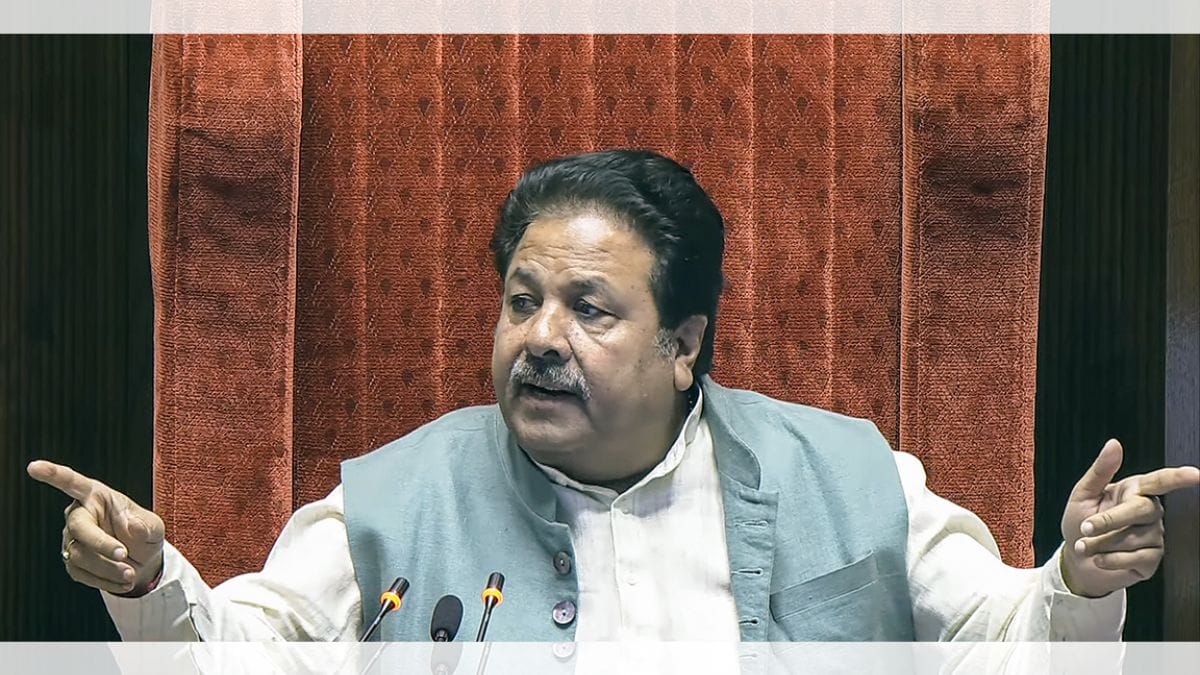
His real breakthrough came after moving to Delhi in the mid-1980s, where his meteoric rise across media, politics and cricket administration became a case study in how influence is built and sustained—not just inherited.
BJP leader and Speaker of the Uttar Pradesh Legislative Assembly Satish Mahana, also from Kanpur, told ThePrint, “I have known Shukla since the 1980s, when he was a journalist in Kanpur and I was a youth leader there. We have shared a good bond ever since.”
Mahana recalled, “One mutual friend between us was former Union Minister Arun Jaitley ji. I often found Shukla in his chamber in Parliament. Actually, all three of us shared a close bond. Shukla has always maintained good relations with everyone across parties.”
“I have known Shukla since the early 1980s. I also know his brother, who is a journalist by profession. He still shares the same bond with me that we had 40 years ago. These are the reasons behind his successful journey,” said senior JD(U) leader K.C. Tyagi.
Adding, “Shukla is a master of management. He holds ideological differences with opponents but never turns them into enmity. In his political statements too he does not attack personally.”
Also read: RCB stampede shows our cities aren’t equipped for mass euphoria and celebration
‘ABVP background’, meteoric rise after moving to Delhi
Many of his former colleagues in Kanpur claim that in his college days, Shukla was an active member of the Akhil Bharatiya Vidyarthi Parishad (ABVP).
His close aide and former colleague at Satya Samvad and then later in Dainik Jagran, Dr Ramesh Verma told ThePrint, “He was an active member of the ABVP in college life, but once he entered journalism, he stayed away from RSS-affiliated student organisations. I remember he attended the ABVP’s convention in Varanasi in the late 1970s. He mentioned kissa kahanis (stories) of that convention to us.”
“As of now, I still do not exactly remember our first salary, but it was some hundred rupees per month. Rajeev’s main quality was that he never looked back once he left a place. He focuses only on positive outcomes. His career rise is also an example of this—he climbed the ladder of success without stopping,” Verma added.
Shukla, however, denied any association with the ABVP, though he acknowledged that Verma was his senior colleague who guided him in the initial days of his career.
Before moving to Delhi in the mid-1980s, Shukla worked in Meerut for Jansatta, a Hindi daily of the Indian Express Group.
While working with Jansatta, Shukla recalled, in the mid-1980s in Meerut as western UP bureau chief, a seven-day employees strike took place in The Indian Express. During this period, journalists from Jansatta who had a command over English, were invited to work for The Indian Express. It was during this time that he proved himself as a bilingual reporter.
“When he was a journalist, he used to visit our house to meet my father in the late 1980s. My family has known him since then, but he never favoured us in politics nor in cricket administration,” said Azad, who is the son of former Bihar chief minister Bhagwat Jha Azad.
After his brief stint with the Indian Express group, he became a special correspondent for ABP Group’s Ravivar magazine, where he started networking with Lutyens’ Delhi’s influential personalities.
“Shukla’s two cover stories on corruption charges against former PM V.P. Singh changed his career. In that phase, V.P. Singh was a cabinet minister in Rajiv Gandhi’s government. His cover story titled ‘Beimaan Raja’, which exposed alleged corruption in land deals by an Allahabad-based trust whose trustee was V.P. Singh, became the talk of political circles,” a former colleague of Shukla’s told ThePrint on the condition of anonymity.
It was during V.P. Singh’s tenure as defence minister that a Swedish radio station alleged that Swedish arms manufacturer AB Bofors paid kickbacks to individuals in India to secure a Rs 1,437 crore deal for the supply of 400 155 mm Howitzer guns for the Army. Later, when Singh resigned and became vocal against Rajiv Gandhi over the Bofors scandal, Congress leaders referred to Rajeev Shukla’s story while attacking him.
Singh refuted the corruption charges made by the Calcutta-based Hindi weekly.
“After that, Shukla got closer to Rajiv Gandhi,” the former colleague said, adding that his meetings with Rajiv Gandhi during foreign tours also brought him closer to the then Prime Minister. “I also remember Rajiv’s visit to his house near Asiad Village in Delhi in the early 1990s,” the ex-colleague said. Shukla, he added, had a scooter he would use to go reporting until the 1990s.
Friends and business
Those who know him describe Shukla as a man who moves easily between four worlds—politics, business, cricket, and entertainment. But he isn’t just a part of all these spaces; he connects them. In 2004, when Sonia Gandhi led the Congress back to power, Shukla arranged private movie screenings at Delhi’s Mahadev auditorium. The films were Shah Rukh Khan’s Veer Zara and Main Hoon Na, and among the audience were Rahul and Priyanka Gandhi.
Whenever the Gandhi siblings are seen at a cricket match, chances are, they’re sitting next to Shukla.
“He seems to have a special talent—he can sense who’s about to rise in politics or business,” a senior Congress functionary told ThePrint.
“He often aligns himself with such people, whether it means being seen at their parties or finding a way to the front row at big events. And people don’t seem to mind. With his sharp memory, political instinct and love for stories, Shukla can be a charming presence at any gathering.”
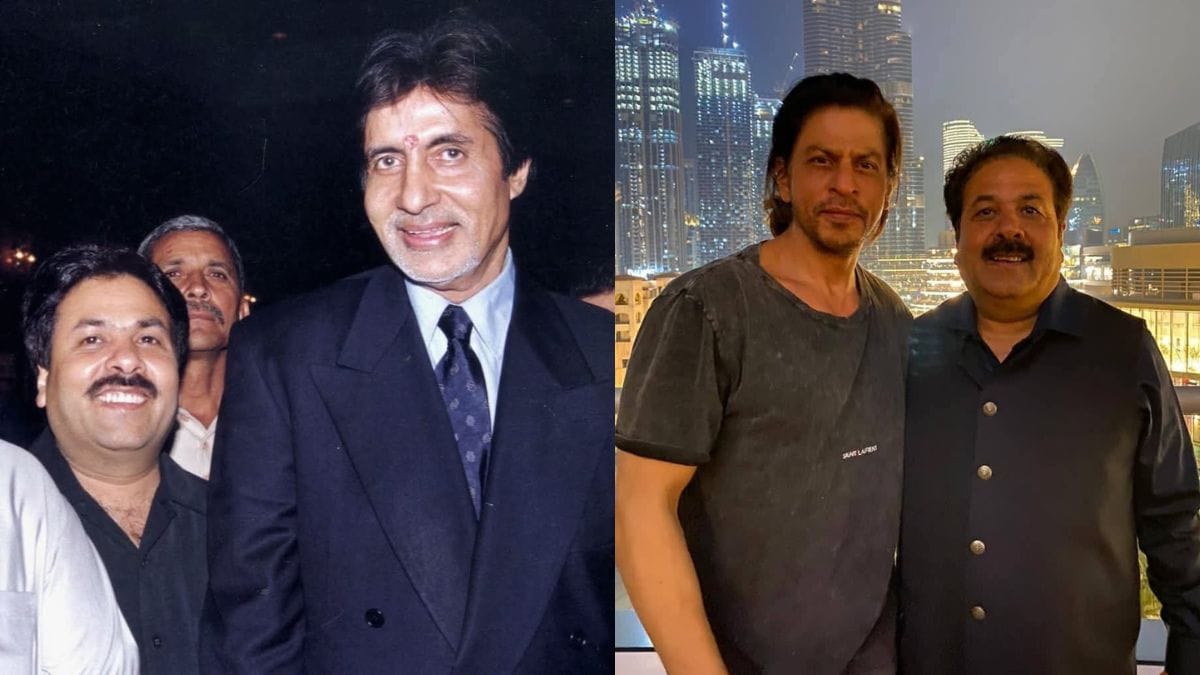
His personal life also connects him to the political world. His wife, Anuradha Prasad, runs a media company called the BAG Group, started in 1993. Her father, Thakur Prasad, was a respected lawyer and a leader in the Jana Sangh. Her brother is senior BJP leader and former Union minister Ravi Shankar Prasad.
Over the years, Shukla has also moved in circles that include high-profile figures from business and film, such as industrialist Mukesh Ambani and Bollywood superstar Shah Rukh Khan.
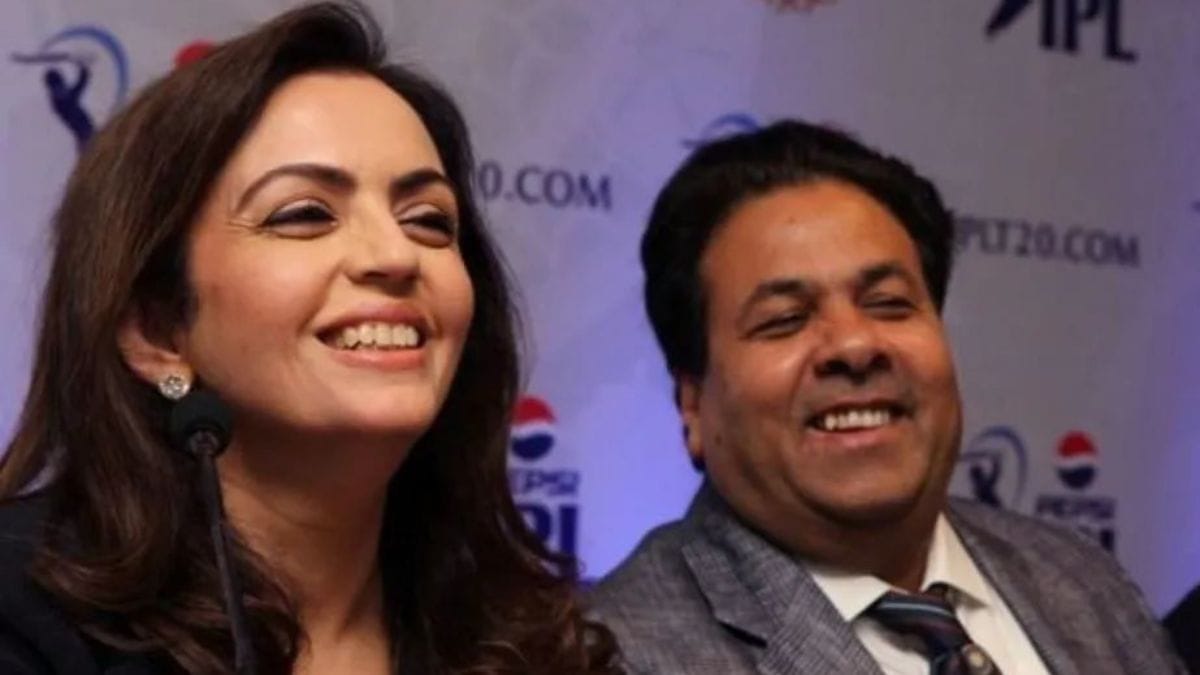
Back in 1996, when Shukla was hosting a talk show called Ru Ba Ru on Zee TV, he interviewed Shah Rukh. This was soon after Dilwale Dulhania Le Jayenge became a hit. He also interviewed Narendra Modi in the late 1990s. Other influential personalities he interviewed include Atal Bihari Vajpayee, Balasaheb Thackeray and Sonia Gandhi.
Journey in Congress till now
While covering politics as a journalist, Shukla became closer to politicians, particularly from Uttar Pradesh. Shukla was considered close to Jitendra Prasada, former MP and adviser to Rajiv Gandhi.
According to a senior UP Congress functionary, Jitendra introduced him to Uttar Pradesh leader Naresh Agarwal, who was then planning to form the Loktantrik Congress in 1997. Later, Shukla entered the Rajya Sabha via this party.
Agarwal, who has been with the Congress, Bahujan Samaj Party and Samajwadi Party, has been with the BJP since 2018.
Back in 2003, when Mulayam Singh Yadav took over as Uttar Pradesh chief minister, the political winds began to shift. Most members of the Loktantrik Congress, once led by Naresh Agarwal, aligned themselves with the Samajwadi Party. Agarwal was rewarded with a cabinet berth, marking a clear merger of political convenience.
But two senior figures chose a different path. Former MLC Siraj Mehndi and Rajya Sabha MP Shukla quietly gravitated toward the Congress, not through a formal announcement, but through steady appearances at party events in the run-up to the 2004 Lok Sabha elections.
“We didn’t officially join till then, but we began showing up. Rajeev wanted to focus on national politics as he was based in Delhi, and I wanted to focus on state politics. Later, we joined the party formally,” said Mehndi.
By the early days of UPA-1, Shukla was no longer just a passive observer. He had begun weaving himself into the Congress’s inner circle. His growing closeness to the late Ahmed Patel helped him find both access and influence.
By the time his Rajya Sabha tenure was nearing its end in 2006, Shukla was already well entrenched in the party’s trusted coterie. It was Patel who arranged a meeting with Sonia Gandhi, and not long after, the Congress nominated Shukla for the Rajya Sabha again—this time from Maharashtra.
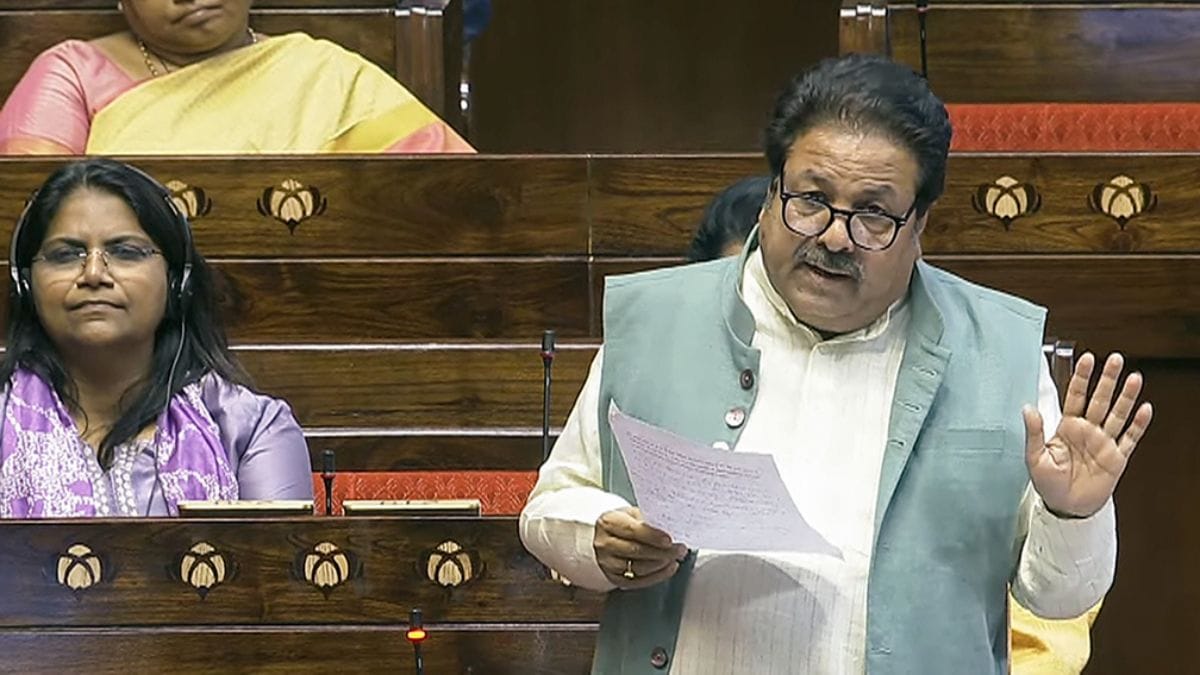
While his political profile grew, so did his other ambitions. In parallel, Shukla was making swift strides in the world of cricket administration through the BCCI and expanding his family’s media business. His wife’s BAG Films & Media Ltd. (short for Bhagwan, Allah, God) launched the Hindi news channel News 24 in 2007 and the entertainment channel E24 in 2008.
Behind the scenes, Shukla had also formed a strong working relationship with Priyanka Gandhi Vadra, who, at the time, had not yet entered electoral politics but played a key backroom role.
According to a member of her core team, “Shukla ji had direct access to Priyanka ji. He became her point person, fixing meetings, solving problems in the UPA era. Meetings with Bollywood star Shah Rukh Khan, to wrestler The Great Khali, he made things happen.”
According to senior Congress functionaries, Priyanka pushed for his appointment as in-charge of Himachal Pradesh in 2020. There, too, he displayed his trademark skill—balancing the ambitions of three rival factions led by Rani Pratibha Singh, Sukhwinder Singh Sukhu and Mukesh Agnihotri.
In an interview with Lallantop (India Today group) in 2023, Shukla once revealed how he managed the Himachal crisis before the assembly polls. “Maine teeno netaon ko bola, ‘Agar aap mahal banaenge toh sabko kamre milenge; agar khandhar rahega toh kisi ko kuch nahi milega’ (If you build a palace, everyone gets a room. But in ruins, there’s nothing for anyone).”
When his Rajya Sabha term was about to end in 2018, Shukla narrowly missed the bus for a renomination for the fourth time.
He was called to file papers from Gujarat at around noon on 12 March, 2018, but by then, time had run out as air travel to Ahmedabad was curtailed due to the closure of the airport.
A Congress source said Shukla had even managed a charter for himself, but was unable to reach.
Shukla was fielded after concern that the original candidate, Naranbhai Rathwa, may not have all his papers in order.
After four years, he was again fielded as a Congress candidate for the Rajya Sabha from Chhattisgarh, where the Congress was in power then. Then again, it was Priyanka Gandhi—who shared a good rapport with former Chhattisgarh Chief Minister Bhupesh Baghel—who helped Shukla get a Rajya Sabha ticket, the source mentioned above, added.
Earlier this year, in March, he was removed as Himachal Pradesh in-charge. Just days later, he was inducted into the Congress Working Committee (CWC), the party’s highest decision-making body.
“His CWC appointment was made right before the Ahmedabad session held in April this year. Interestingly, the official release carried just one name—his. That alone speaks volumes about his standing within the party,” said a senior Congress MP.
Entry into world of sports
Rajeev Shukla made his entry into the BCCI through the Uttar Pradesh Cricket Association (UPCA) in 1989. His old colleagues in Kanpur claim that Shukla was considered close to the Kanpur-based Singhania business family, who had influence in the UPCA, as Kamla Club and Green Park Stadiums are based in Kanpur. Shukla entered the UPCA in the late 1980s.
“Shukla ji never became UPCA president, but his close aides were always chosen as UPCA chief. This is how Shukla ji runs Uttar Pradesh’s cricket,” according to a UPCA functionary.
On the other hand, Shukla claims that after entering UPCA in 1989, his entry into the BCCI happened in 1991 in the Junior Cricket Committee when Congress leader Madhav Rao Scindia was the board president. Later, he entered the senior body of men’s cricket.
In 2002, Shukla was appointed media manager of the Indian cricket team, a role that brought him into the spotlight, particularly during the NatWest series win, where a famous photograph shows him standing alongside Sourav Ganguly in the dressing room.
Shukla’s rise within the BCCI continued with his appointment as IPL chairman in 2011, a position he held until his reappointment in 2015. Sources within the board suggest that his close ties with IPL franchise owners and politicians were key factors in his appointment.

Since late 2020, Shukla has held the position of BCCI vice-president, in addition to having served as secretary of the UPCA until 2017.
According to Amrit Mathur—a senior sports administrator with over 30 years of experience in various sports associations, and who had an advisory role with the Ministry of Sports—Shukla is a “team person” who plays a crucial role in building consensus among board members.
Mathur noted that Shukla’s influence within the cricket board has been significant for at least two decades, serving as a bridge between members and cricketers.
‘Everyone’s best friend’
Shukla is considered everyone’s friend. His statements never attract controversy, and his social media posts are filled with birthday wishes and about attending weddings and political events.
“Rajeev Shukla is everyone’s best friend. I have known him since the early 1990s, when I shifted to Delhi from Bombay. I remember I had a lot of interactions with him in Delhi’s INS building, which he used to visit frequently. Shukla used to work for Sunday magazine those days,” journalist and author Rajdeep Sardesai told ThePrint.
“In media circles, those days, he was considered close to former prime minister Rajiv Gandhi. He was also famous for helping everyone by giving them political contacts. He used to help them with fixing meetings. Even today, he helps his friends. He never says anything bad about any politician.”
Sardesai recalled a friendly cricket match between MPs XI and Journalists XI. Shukla was a manager of MPs XI, and Rajdeep was playing for Journalists XI. “When our team won the match, Shukla switched sides and came to collect a trophy for photo-clicking. I said, ‘You were on the MPs’ side.’ He smiled and said, ‘So what? I am a journalist also by profession.’ So, he knows how to be in the right frame at the right time,” Sardesai said.
For Kanpur people, Shukla is still a “Kanpuriya”.
Kanpur-based writer Dr Sanjiv Mishra describes Shukla’s personality as a “mast maula Kanpuriya”.
“Shukla never forgot his roots. Every Kanpurwallah is welcomed at Shukla’s Delhi house. I still remember last year when I went to a book fair in Delhi where there was a discussion event on my book, Bawali Kanpuria. Shukla came to our stall and clicked photos with us,” he recalled. “Some people smiled there saying, ‘Teen Kanpuria bawaali ek sath’ (me, Rajeev and our book). Bawaal here means a positive word, dhamaal. Literally, he made it in the world of politics, media and sports.”
(Edited by Sugita Katyal)
Also read: BCCI should boycott Pakistan Cricket Board. It will hurt its finances, not the game



